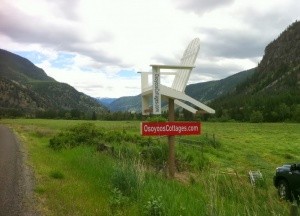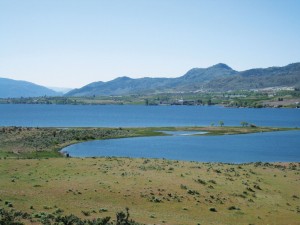How I Did It: Eric Van Maren
Originally published in Business in Vancouver - July 2014
Business in Vancouver’s “How I Did It” feature asks business leaders to explain in their own words how they achieved a business goal in the face of significant entrepreneurial challenges. In this week’s issue, developer Eric Van Maren explains how he was able to quickly pivot when he realized that baby boomers, not vacation home buyers, were the real market for The Cottages on Osoyoos Lake. Located on Osoyoos Indian Band land and leased from the federal government, the land is not constrained by restrictive municipal land-use bylaws.
"My brother and I have been in the construction and land development business since 1973. Since 2002 we’ve been doing more development and real estate investment.
“We originally envisioned The Cottages on Osoyoos Lake to be primarily a vacation home development, with perhaps a smaller group of budget-conscious retirees. The innovation we had was recognizing, very early on, that the market for our product was different than we thought it would be.
“The home plans were small, they were cottage-style. We put in a good basic level of finishes but thought we should have a limited number of upgrades that people can choose from. Great concept. But when we started selling, we discovered quite quickly that the second-home buyers, there were fewer of them than we had anticipated. But what our project was doing was attracting wealthy baby boomers who were looking for a sunny place to retire.
“What we really missed was the fact that baby boomers have a ton of money, they want to spend it their way and when a developer comes along and says, ‘Here’s the house, you can’t change it,’ they’re disappointed and they walk away. They were looking at our drawings, and a lot of them said, ‘You don’t give us enough choices, we feel a little bit restricted on what we can do, and don’t you have a larger house plan and can’t you put garages on some of these houses?’
“So about halfway through that first year, we said, ‘We may be missing the market. Instead of this being a vacation home development with some retirees, perhaps it’s the reverse.’
“That required us to change our designs quite a bit, which we did very quickly. We started offering larger plans with double garages and made a decision that any change was acceptable. When we looked at the profile of our buyer, we recognized that cutting costs to save money, and cutting quality, was absolutely the wrong way to go. We no longer have homes built ready to move in because everybody wants to customize.
“We had one very wealthy couple from Ontario, they ... may spend $1.5 million here with the house and the lot and all in.
“We needed more staff because this whole customization process is very intensive – two on the marketing and design side and one person on the construction side.
“The Osoyoos Indian Band really doesn’t have a zoning bylaw, so they approved the original concept for the development and the concept was really broad-ranging. Being able to radically change our target market and floor plans within a 30-day period ... without having to go through all kinds of approvals and hoops to jump through, that’s what was key to our success.”
To read the Business in Vancouver version click here.



